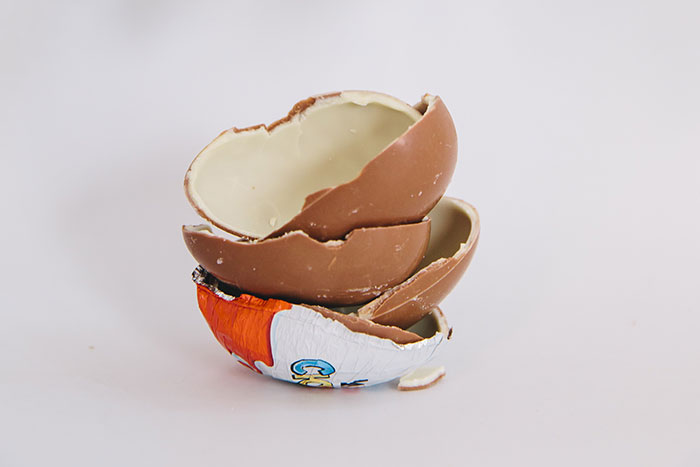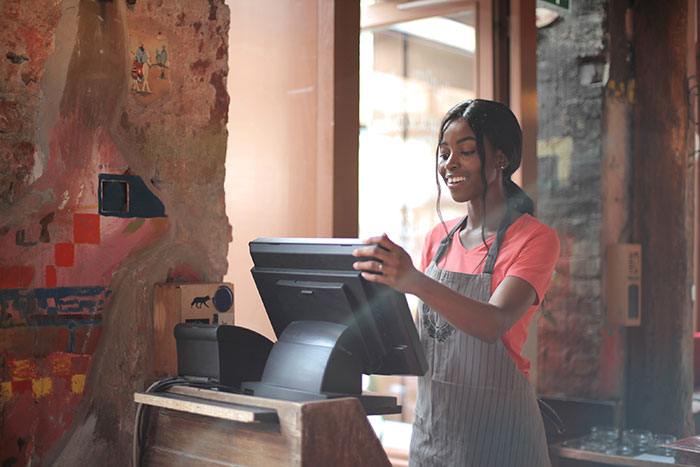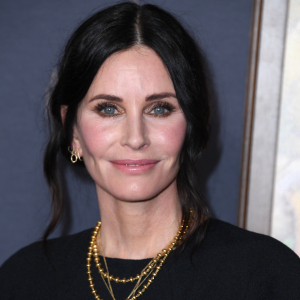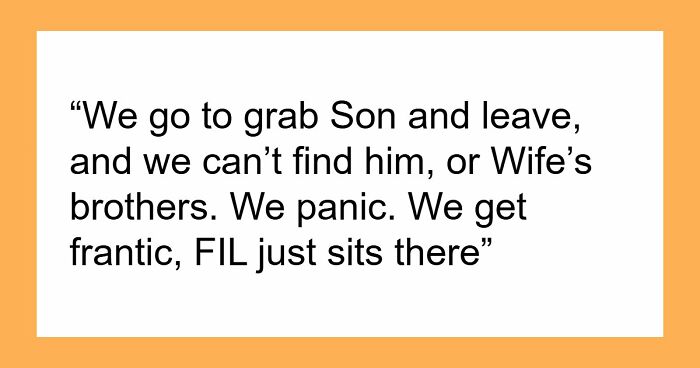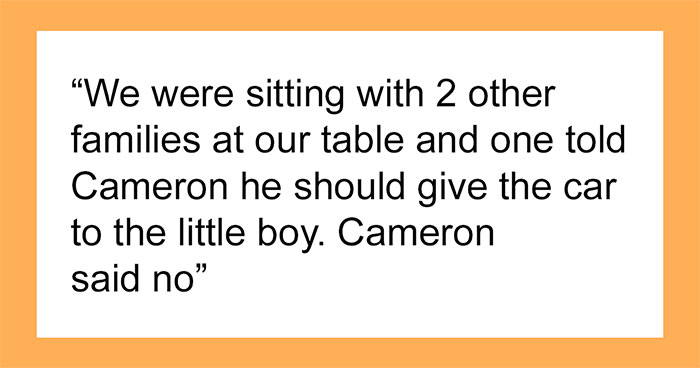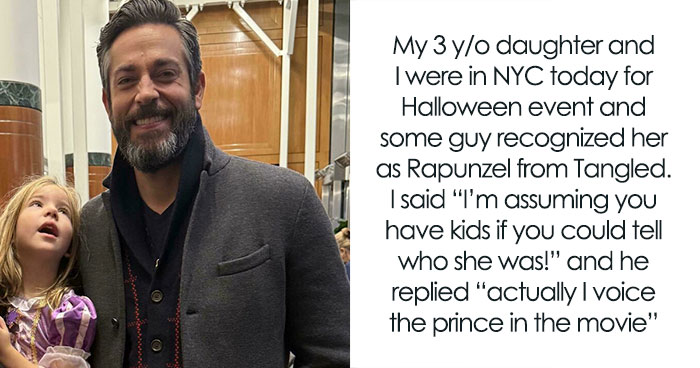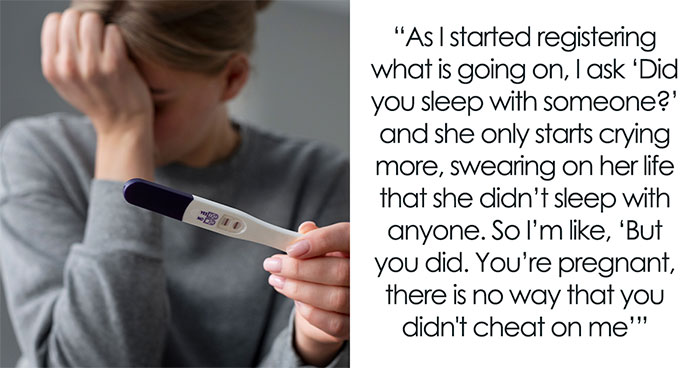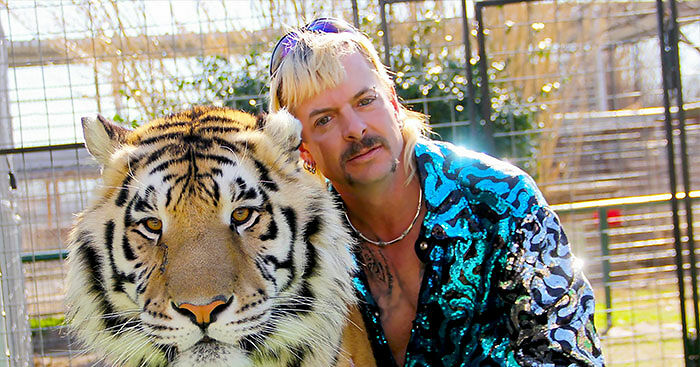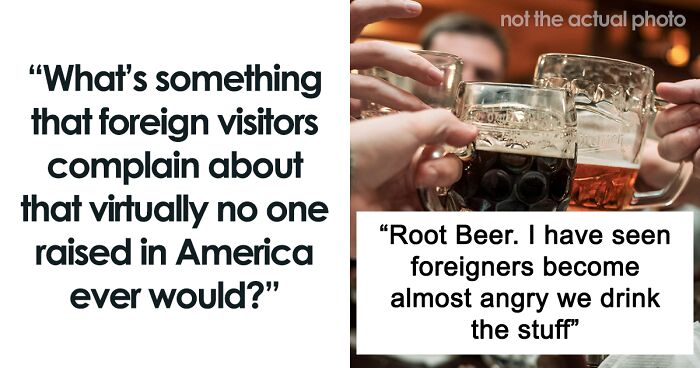
“Toilets Have Too Much Water In Them”: 30 Things That People From Other Countries Find Bizarre When Visiting The US
As an American who has lived in Europe for several years now, there are plenty of things I sometimes miss about back home. Screens on windows are a huge blessing during mosquito season, and it’s rare when I find a cold beverage served at a temperature that I would consider suitable. (With lots of ice! Please!) But as it turns out, plenty of the things Americans cherish, or simply consider normal, seem to bother others from around the world.
Reddit users have been discussing some of these American quirks that foreign visitors tend to complain about, so we’ve gathered some of their thoughts below. Enjoy learning about these cultural differences, whether you’re from the US or not, and keep reading to find conversations with Karen Simmons from offMetro and King Siu from Solo Traveler!
This post may include affiliate links.
How fat the cops are. My friend's parents were in from Spain and his father was mystified how most of the NYPD could chase someone if they cannot even see their feet.
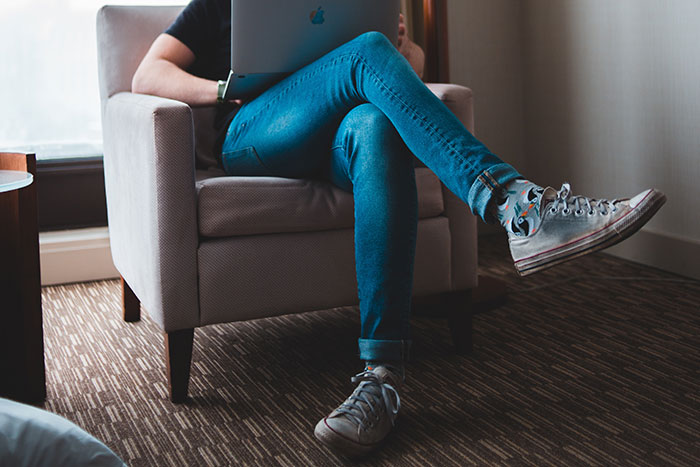 Wearing shoes in the house. I never thought twice about this until I dated a Russian guy. His family was literally disgusted that anyone would dare wear shoes inside their house. Where I grew up, it’s considered weird to take your shoes off inside someone else’s house. It’s basically the equivalent of walking in and putting on your pajamas. I have to say though, I no longer allow anyone to wear shoes in my house.
Wearing shoes in the house. I never thought twice about this until I dated a Russian guy. His family was literally disgusted that anyone would dare wear shoes inside their house. Where I grew up, it’s considered weird to take your shoes off inside someone else’s house. It’s basically the equivalent of walking in and putting on your pajamas. I have to say though, I no longer allow anyone to wear shoes in my house.
The logic is that, that same shoe, you go thru filthy public toilet, walk on streets that smell musk (from p**s), walk thru park that maybe step on cats/dogs shits. And than , inside your house.
To gain more insight on this topic, we reached out to Karen Simmons, Editor in Chief of the travel blog offMetro, to hear her and her team’s thoughts on what American quirks stand out to foreign tourists. Some examples Karen shared that are commonly brought up are: “the large portion sizes and the amount of sugar and fat in the food; the gaps in the bathroom stalls and the lack of bidets; the tipping culture and the low minimum wage for servers; too much advertising everywhere; the high drinking age and the strict ID checks; patriotism and the abundance of flags; and the small talk and the excessive politeness.”
“We, as Americans, naturally have mixed feelings about these things,” Karen noted, speaking on behalf of her team. “Some of them we agree with, some of them we don’t. We like the diversity and friendliness of American culture, but we don't like the excessive sugar and fatty foods. We don’t mind the tipping culture or the advertisements, but we respect that other countries do things differently. We think every country has its pros and cons, and it’s interesting to learn from other perspectives.”
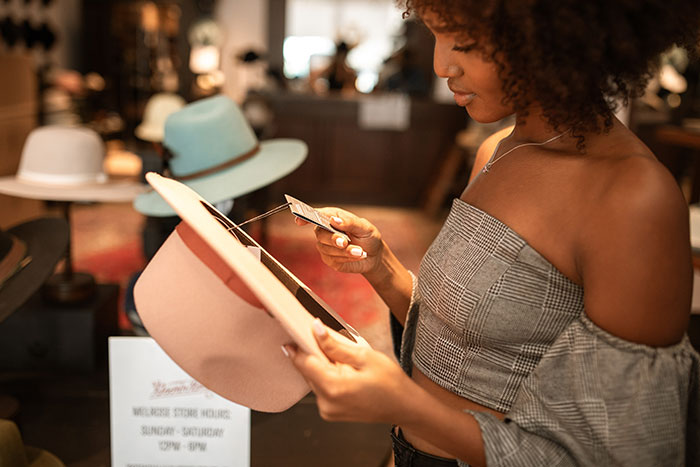 Not having sales tax listed on the price tag for stuff.
(Obviously, I agree with them. Wouldn’t it be nice if you could know the actual amount you’ll need to pay. But I’ve lived my whole life with this as the way things are, it never occurs to me to complain.)
Not having sales tax listed on the price tag for stuff.
(Obviously, I agree with them. Wouldn’t it be nice if you could know the actual amount you’ll need to pay. But I’ve lived my whole life with this as the way things are, it never occurs to me to complain.)
This would be so nice. Instead of 5.99+tax you could get the flat out price of 6.37
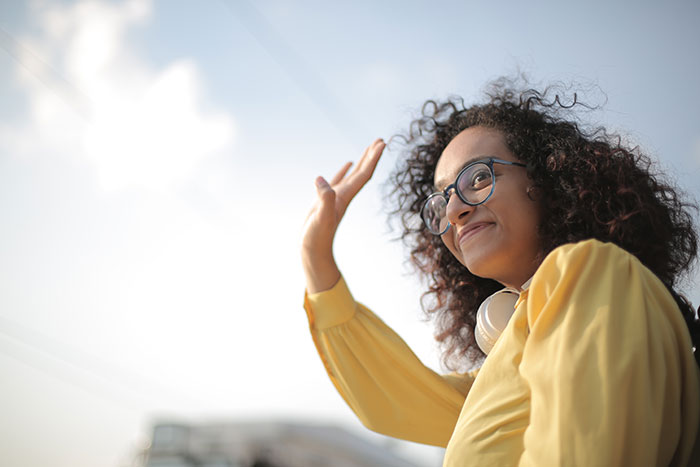 The “how’s it going?” greeting.
Like, yes, I get it, in your culture nobody asks that question unless they’re actually inquiring after your well being. But just like Americans should make it a point to learn the customs of MyCountry before visiting - even if they don’t understand or even agree with them - people should make it a point to get to know and learn our customs before coming here. And in the US, we will ask, “how’s it going?” as a general greeting without expecting an in depth answer, because it serves as an easy way to start a conversation.
No, that does not make us stupid, or fake, or bad, or wrong. These are our customs. It’s poor form to go to another country and interpret their customs in bad faith.
The “how’s it going?” greeting.
Like, yes, I get it, in your culture nobody asks that question unless they’re actually inquiring after your well being. But just like Americans should make it a point to learn the customs of MyCountry before visiting - even if they don’t understand or even agree with them - people should make it a point to get to know and learn our customs before coming here. And in the US, we will ask, “how’s it going?” as a general greeting without expecting an in depth answer, because it serves as an easy way to start a conversation.
No, that does not make us stupid, or fake, or bad, or wrong. These are our customs. It’s poor form to go to another country and interpret their customs in bad faith.
I actually really appreciate this post. I constantly cringe at Americans being ignorant of other countries customs, but never thought about how people react to ours. And the same respect should go both ways when Americans visit other countries, and when foreigners visit ours.
Karen was also kind enough to share some things that her team actually thinks the United States does well. First, she noted the national parks and the public land system. “The US has a vast and diverse network of protected natural areas that offer recreation, education, and conservation opportunities for millions of visitors and wildlife,” Karen explained. “The US also has a strong culture of outdoor exploration and adventure that encourages people to appreciate and respect nature.”
Next, she pointed out the accessibility of travel to and within the US. “The US has a robust and efficient transportation infrastructure that connects different regions and attractions within the country,” Karen added. “The US also has various programs and policies to reduce barriers and enhance security for international travelers, such as the Visa Waiver Program, Global Entry, and Trusted Traveler Programs.”
Here’s something my German FIL complains about: window screens. You know, the things that keep the bugs out? He is convinced that they keep the air from circulating. Ummmm, they don’t, and I don’t like mosquitoes, so we keep the screens down.
Not just mosquitoes, but flies, June bugs, moths, wasps, bees and every other annoying insect that tends to swarm light.
Americans saying they’re from the country despite not speaking the language, not having the citizenship and all their knowledge comes from heavily bastardised and harmful stereotypes. Oh and they’ve lived in the US for at least 4 generations. Looking at you plastic paddies and sepporonis
Ah, ancestral pride. That's what that is. There's some families who still practice their ancestral traditions that came from those countries. North Americans, who are not Natives, feel it's important to acknowledge where their families have come from and hold on to those cultures, as it gives us a sense of belonging. I'm trying to explain this the best, neutral, non-offensive way possible. Never heard anyone say they were from a country they weren't born in. Usually someone will say they're 1st/2nd/3rd, etc, generation born in America. Some will just say they're American/Canadian to keep it simple. But some of us see it as a more historical, complicated thing than to just say "I'm American or Canadian." European descendants living here are not deemed Native to this land. I'm not going in too deep on this, but it comes up and we're constantly reminded the settlers/colonizers who came to North America to steal the land from North American Indigenous tribes. Some of us feel we never belonged.
Customer service and hospitality of the travel industry are two more things the United States certainly does well. “The US has a high standard of quality and professionalism in its hotels, restaurants, attractions, and other tourism-related businesses,” Karen continued. “As mentioned above, the US also has a culture of tipping and rewarding good service, which motivates the staff to provide excellent customer satisfaction.”
Finally, the travel expert pointed out the innovation and entrepreneurship of the travel sector. “The US is a leader in developing new products, services, technologies, and experiences that cater to the changing needs of travelers,” Karen explained. “The US also has a strong spirit of entrepreneurship that encourages new ventures, partnerships, and collaborations in the tourism industry.”
 That when you pay at a restaurant, the server takes your card in the back, rather than bringing a machine to you and swiping in front of you.
My father in law is always like "Where are they taking my card? I can't see them, they are stealing my information!!"
That when you pay at a restaurant, the server takes your card in the back, rather than bringing a machine to you and swiping in front of you.
My father in law is always like "Where are they taking my card? I can't see them, they are stealing my information!!"
In Canada they bring you the machine, and never take your card from you. We've had issues of unauthorized transactions with cashiers and waitstaff. It's been in the news. It's advised to never allow anyone else touch your card for that reason. I take it the FIL is Canadian, assuming.
And when it comes to what Americans might find challenging when visiting other countries, Karin says the lack of personal space and privacy might be tricky, depending on the country visited of course. “Americans are used to having a lot of space and being able to do what they want without being bothered or judged by others,” she explained. “In some countries, especially in crowded cities or rural areas, people may live in close quarters, share facilities, or be more curious and intrusive about strangers’ lives. Americans may feel annoyed by this.”
The US also has vast food and drink options that may not be available everywhere. “Americans are accustomed to having a wide variety of food and drink choices, especially fast food, snacks, and soft drinks,” Karen noted. “They may also have specific dietary preferences that are not common or well-known in other countries. In some countries, the food may be too spicy, bland, exotic, or unfamiliar for Americans’ tastes.”
Long-distance driving. I had relatives from Eastern Europe visit a few years ago, and we drove them from New Jersey down to DC for a weekend visit. When we got back, they commented that it was such a long drive, easily the longest that they’d ever taken by car. Then I showed them a map of the US and how far we’d driven versus the size of the rest of the country. Their heads nearly exploded.
Yeah we get the same thing here (Aus), people don't realise how vast the country is and that you're not going to go from Sydney to see Uluru in a day, or two, or three.
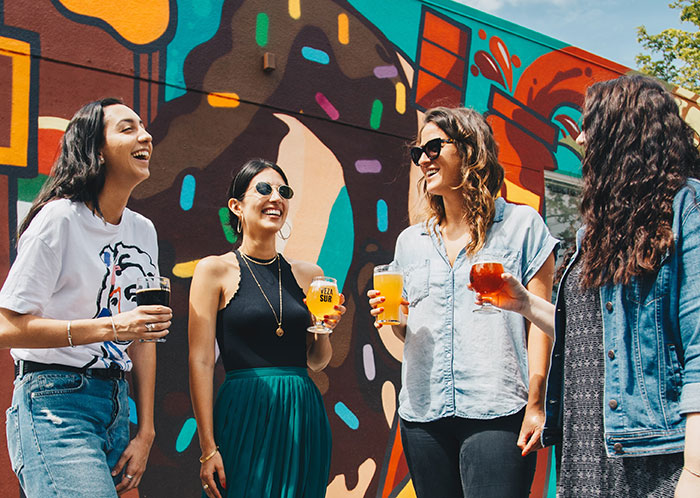 According to every middle easterner, Israeli, and Australian I've met, we're all fake because we're always nice and smiling even when we don't mean it.
Best retort I heard was when my Israeli friend said this to my American friend and my American friend immediately responded "would you rather I be mean to you?"
Apparently we're "too nice" compared to other peoples.
According to every middle easterner, Israeli, and Australian I've met, we're all fake because we're always nice and smiling even when we don't mean it.
Best retort I heard was when my Israeli friend said this to my American friend and my American friend immediately responded "would you rather I be mean to you?"
Apparently we're "too nice" compared to other peoples.
Language barriers and cultural differences may also be challenging for American travelers. “Americans may not speak or understand the local language or dialect in other countries, which can make communication difficult or frustrating,” Karen says. “They may also encounter different customs, norms, values, and etiquette that they are not aware of or used to. They may unintentionally offend or disrespect someone by doing something that is considered rude or inappropriate in their culture.”
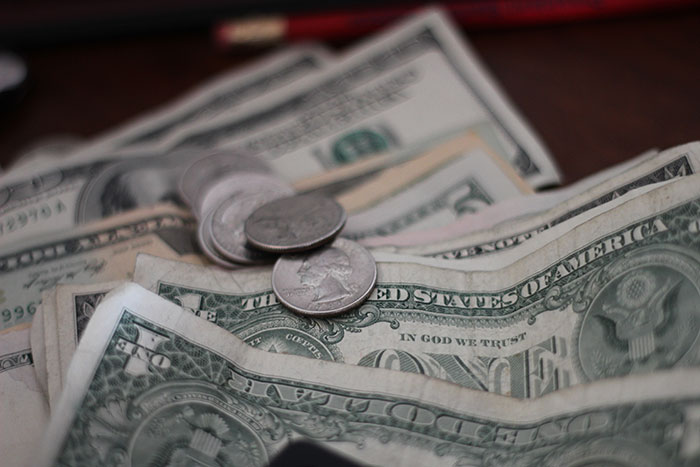 Having tended bar on the beach in Florida (many years ago), the biggest complaint is that our money is confusing. The bills are all the same color and our coin sizes don’t relate in size to their value.
Having tended bar on the beach in Florida (many years ago), the biggest complaint is that our money is confusing. The bills are all the same color and our coin sizes don’t relate in size to their value.
Like the old British penny was about the size of a Silver Dollar and a sixpenny piece was about the size of a dime? LOL!
American travelers must also be prepared for the different standards of service and quality they may experience in other places. “Americans are used to receiving fast, efficient, and friendly service in most places they go, such as restaurants, hotels, shops, and attractions,” the travel expert says. “They may also expect high standards of quality and cleanliness in the products and facilities they use. In some countries, the service may be slower, less attentive, or more formal than Americans prefer.”
If you’d like to gain more travel insight from Karen and the whole team at offMetro, be sure to visit their site right here!
 * Sweetness of food is an issue. High fructose corn syrup is in so many things that Americans no longer notice the sweetness. Other people are freaked out by sweet grocery store bread.
* Questions about occupation or religion are considered personal and rude when Americans consider them small talk.
* Many visitors don't want to eat on the go.
* They think men wearing board shorts or other long, loose swimwear is weird.
* Sweetness of food is an issue. High fructose corn syrup is in so many things that Americans no longer notice the sweetness. Other people are freaked out by sweet grocery store bread.
* Questions about occupation or religion are considered personal and rude when Americans consider them small talk.
* Many visitors don't want to eat on the go.
* They think men wearing board shorts or other long, loose swimwear is weird.
This is confusing. 1. Yeah, American food tends to be sweeter, even much sweeter than food in other countries. Even food you wouldn’t necessarily expect to be sweet. 2. I don’t know anyone who thinks that the right way to start a convo with a stranger is asking about their religion. Unless they are trying to convert you I guess? 3. Don’t get this one. Most people who eat on the go do so because they have to, not because they want to. 4. Wear whatever shorts you want. Most people really don’t care anyway
Oh f**k.. living close to natural parks for a few years left me dumbfounded. A lot of middle eastern and Asian vacationers would lose their minds when park rangers would tell them to keep off certain areas. Either they didn’t understand that our body weight was damaging historic ground or that the oils we produce can damage stone structures or they didn’t care… unfortunately I met many that didn’t care and had the mentality of “enjoy it today because it will be gone someday in the future.” Also, we can’t control the wild life in nature preserves. Watching people approach black bears was always crazy to see. Then they get mad when the bear gets aggressive and they get fined.
We also reached out to Canadian travel expert King Siu, of Solo Traveler, to hear his thoughts on this topic. King was kind enough to provide plenty of examples of things foreign travelers might be struck by when visiting the United States. First, he noted prices that don't include sales tax. "I didn't think it was that big of a deal until I lived abroad and realized how strange and inconvenient it was that we only add the tax on after the sale," King shared. "I'm still hoping for a world where the price I see is the price I pay."
Wearing shoes inside is another typical American behavior that King says is rare in other parts of the world. "Even in Canada, where we often behave similarly to the U.S., I've found the majority of Canadians will not wear their shoes in the house, so that's what I'm used to as well."
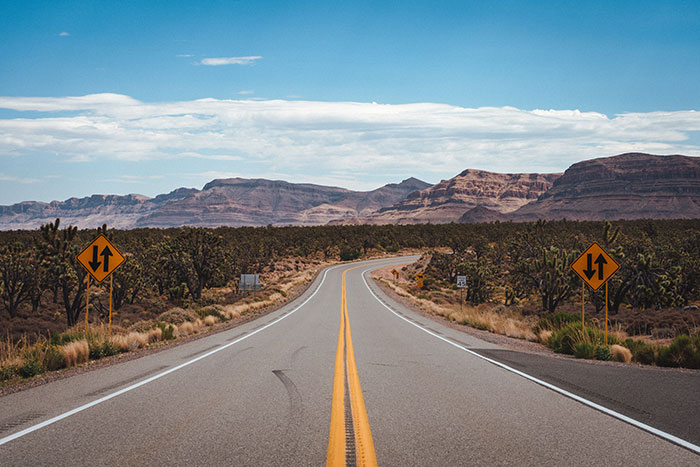 The sheer size of the US. Someone from abroad asked me about taking a road trip from LA to Vegas, the Grand Canyon, and maybe Florida, and they only had a few days to do it. They didn’t understand the massive size of the country.
The sheer size of the US. Someone from abroad asked me about taking a road trip from LA to Vegas, the Grand Canyon, and maybe Florida, and they only had a few days to do it. They didn’t understand the massive size of the country.
Lol...I've driven cross country twice. Daytona FL to San Francisco CA is 4 days of fast trucking without many stops.
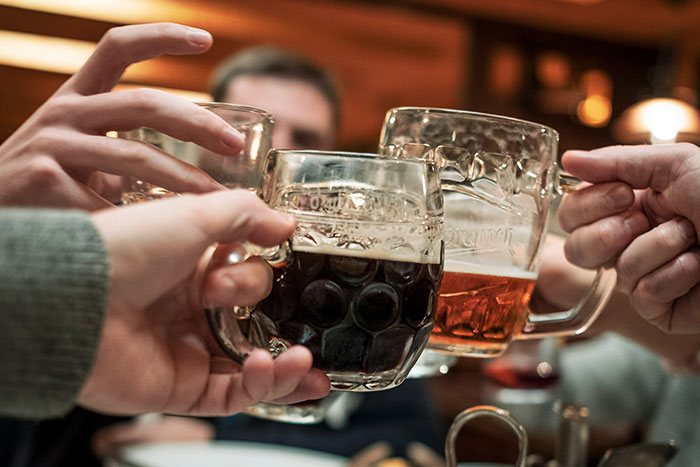 Root Beer. I have seen foreigners become almost angry we drink the stuff. I know the flavor is common in medicines in Europe, but to many Americans, Fanta tastes like medicine. Let us like our weird soda flavor.
Edited to add: the medicine I'm referring to is liquid preparations of Tylenol and Motrin meant for children. Not liquid medicine meant for adults.
Root Beer. I have seen foreigners become almost angry we drink the stuff. I know the flavor is common in medicines in Europe, but to many Americans, Fanta tastes like medicine. Let us like our weird soda flavor.
Edited to add: the medicine I'm referring to is liquid preparations of Tylenol and Motrin meant for children. Not liquid medicine meant for adults.
Grape Dimetap tastes like childhood colds where you weren’t sick enough to stay home from school.
Next, King mentioned the notorious ice in drinks. "A common question I've been asked by my foreign friends who visit the US is why so much ice is put in their sodas, and similarly my American friends will complain about the lack of ice in their drinks when they're abroad," he shared. (Guilty! I just love ice!)
"It's always been quite comical for me to hear both sides," King added. "I'm not terribly bothered either way as long as my drink is cold, but it does seem to be a passionate topic for many. I feel the problem stems from the fact that outside of the U.S., it's not as common to have unlimited refills of drinks, and therefore you wouldn't want to feel like you were given a glass full of ice so that they could cheat you and not give you as much soda. Whereas Americans are expecting unlimited refills, so they're not concerned about how much space is being taken up by ice as they can always ask for more."
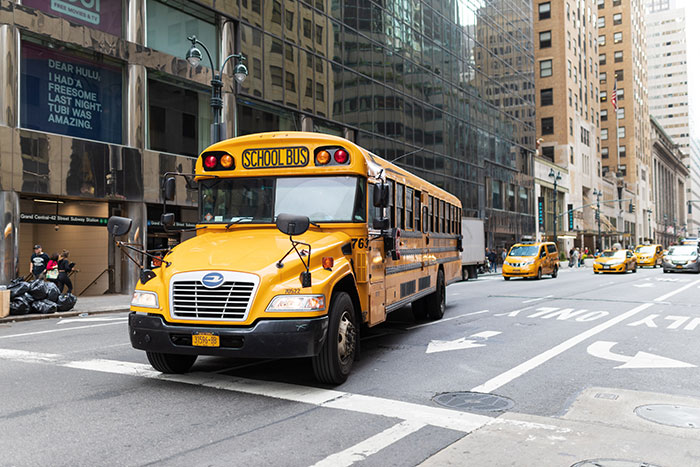 School buses stopping traffic.
"Why don't you just teach your children not to run out into traffic?"
School buses stopping traffic.
"Why don't you just teach your children not to run out into traffic?"
Tipping culture and customer service are two more things that the United States tends to do differently than the rest of the world. "[Tipping culture] is generally very confusing for people from other countries," King says. "Tipping either doesn't exist or isn't as commonly expected as it is in the US. I've found that it's getting so complicated these days that I'm even confused at times about who needs to be tipped. So, I'm not surprised when foreign visitors complain about the confusing state of tipping in the US."
"Strange as it is to hear, foreign visitors often complain about getting too much customer service," the travel expert continued. "No one does customer service better than Americans, and all this attention, smiling, and politeness can unnerve visitors who aren't accustomed to so much attention. I personally love good customer service, but I can totally see how it might freak someone out." Now that I've lived in countries where it's extremely rare to even get a greeting from grocery store employees, I can see how this is odd too. But I have to admit, I miss my weekly chats with Trader Joe's workers!
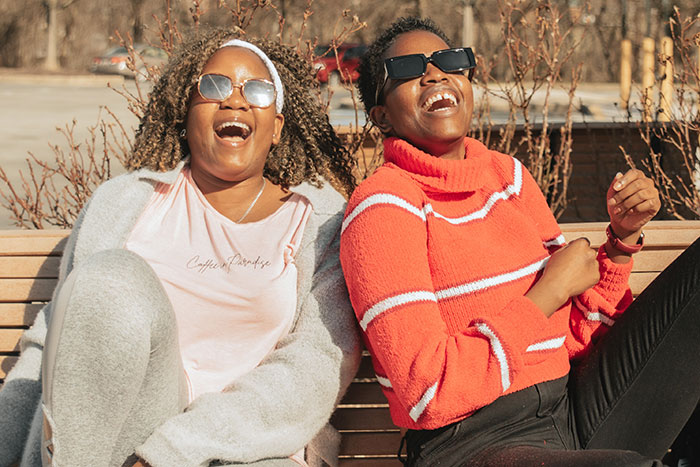 I’ve seen plenty of complaints online of people saying Americans are too loud and too friendly!
I’ve seen plenty of complaints online of people saying Americans are too loud and too friendly!
I was on a bus and this guy was talking it up REALLY LOUDLY with a soft spoken lady. No one else on the bus was speaking, or talking loud. He was telling her, and pretty much everyone, that he's from Texas and all that, apologizing if he's loud. Came across rather nice, but full of himself and obnoxious at the same time. When the lady got off at her stop he just started rambling to whomever and began to vape, which is against transit rules. The driver called him out on it, and firmly (our bus drivers put up with a lot of s**t). I was worried this guy was going to go off on the driver, as most Winnipeggers do. Nah, he apologized to the bus driver and put it away. He was super chill about it. It was surreal. Not something we're used to seeing from disruptive people here. Gave me something to reflect on. It's hard to explain. We're used to seeing the aggressive, violent ppl be loud and obnoxious. Not friendly, chill people. We do welcome Americans here and enjoy talking to them. They do seem more genuinely friendly.
Air conditioning, and especially ceiling fans. Can't stand the heat, can't stand ways to beat the heat.
I live in the southern states. There are times when the heat and humidity are so high that it literally kills people. Like every summer. Last year topped out at 107° in shade. Out west, like in Vegas, it literally get up to 120°. We have shelters for folks that don't have ac to go to in these situations because otherwise they would die. Why do other countries like to sweat so much!? I don't understand why they care so much that we need ac. You need heat in the winter, right?
"Foreign visitors are still confused as to why the US hasn't joined the rest of the world on the metric system," King continued, adding that most Canadians actually don't care whether or not the US converts, as they've "always lived in a world where both metric and imperial measurements exist."
Apparently, TVs in restaurants are a distinctly American thing as well. "This is something I've heard mostly from Europeans, as it's not as common for them to have TVs in their restaurants," King says. "However, they've remarked that Americans will cover every wall with them. I must say that I didn't think this was weird until they pointed this out. I do, however, enjoy the convenience of always knowing the score when I'm out without having to check my phone."
And many foreign visitors are struck by the antiquated payment technology in the US. "[They're] often confused when paying their bill at a restaurant with a credit card that they have to manually sign the bill," King says. "Outside of the US, it's more common for the staff to bring a payment terminal to you that completes the payment transaction with a PIN instead of a manual signature."
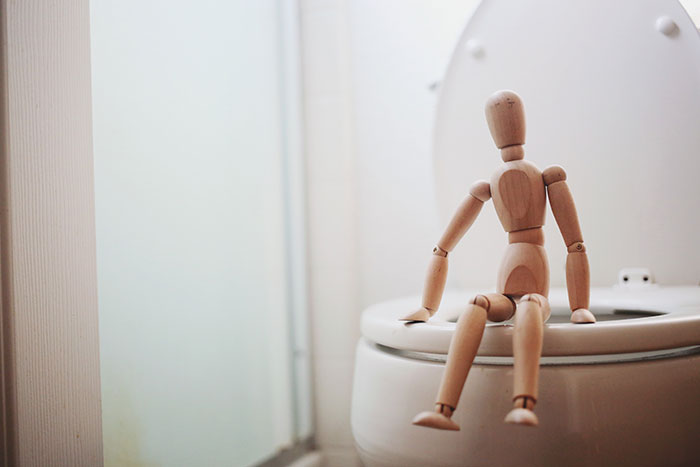 That toilets have too much water in them.
That toilets have too much water in them.
Toilets vary immensly from country to country. I encountered a weird one in the US with a shelf directly under your bum and the water at the front. Great for examining your stool afterwards, but if you dropped a good 'un, it'd be stroking your a**e. Now that is going to need some quantity of water to shift it!
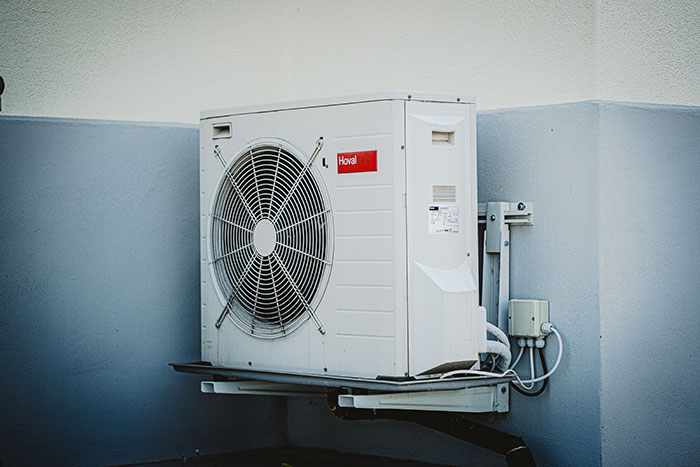 Too much air conditioning.
I believe the UK and Western Europe are having a heat wave now with temps hitting the 40s/100s yet they can't conceive of why air conditioning is so ubiquitous here.
Heat is deadly here, unless you live in the Pacific NW or Upper MW/NE. Whether you have air conditioning shouldn't even really be a debate in a developed country. I don't understand how they can think properly when the temps are over 95F (35C), especially on humid days.
Too much air conditioning.
I believe the UK and Western Europe are having a heat wave now with temps hitting the 40s/100s yet they can't conceive of why air conditioning is so ubiquitous here.
Heat is deadly here, unless you live in the Pacific NW or Upper MW/NE. Whether you have air conditioning shouldn't even really be a debate in a developed country. I don't understand how they can think properly when the temps are over 95F (35C), especially on humid days.
I'm all for AC, but going from 38C to 18 as you cross the door is quite extreme. At 22 you're just as cool.
We also asked King if there are any things the US does particularly well that other countries might be able to learn a thing or two about. "I would love to see the world adopt more of the customer service standards of the US," he told Bored Panda.
"I think that Americans, in general, do a better job of celebrating the success of others," he continued. "I know it's a hot take, but I've just generally found that. I am not saying that people don't celebrate the success of others outside of the US, but just that Americans seem to do it more frequently and effortlessly. I feel it may have something to do with the American dream being such an integral part of the American mindset, because they feel success for them is just around the corner."
2-4 hour drives from place to place not being a big deal
I work with people who spend almost three hours a day on their commute.
My ex is from mainland China. When he first came to the US he thought we keep an unnecessarily large quantity of food on hand in our homes. To him, we seemed like food hoarders. In comparison, I found most Chinese homes very sparse. Most places in China (when I was there, ten years ago), is still very feasible to go to the grocery store daily. Also, it cost about the same amount whether you eat out or cook at home, so eating out is much more common. After we lived in the US suburbs for a while,. Y ex started to see the practicality of doing a week's worth of shopping at a time. We just didn't have time to go to the grocery store every day.
Population density is a thing too. If you live in a place where you're 1/2 an hour from the store then makes sense to shop once a week. If you live within easy walking distance every couple days seems fine.
King went on to add that garbage disposals are a great tool that the US utilizes. "I had never been exposed to them until I started to spend time in the US, and I think everyone could learn to love them as much as I do." (Completely agree! I miss having one dearly!)
"Creating reasons to have lighthearted fun" is another thing King says Americans do well. "I don't think any other country is better at inventing reasons to have a party than the US. I'm sure there is a national day of something that has been assigned to every day in the calendar, and I think everyone should follow that lead and try to do something fun and silly everyday."
King also noted that he's a fan of baseball. "It's a beautiful game, so I really wish the world would give it a chance."
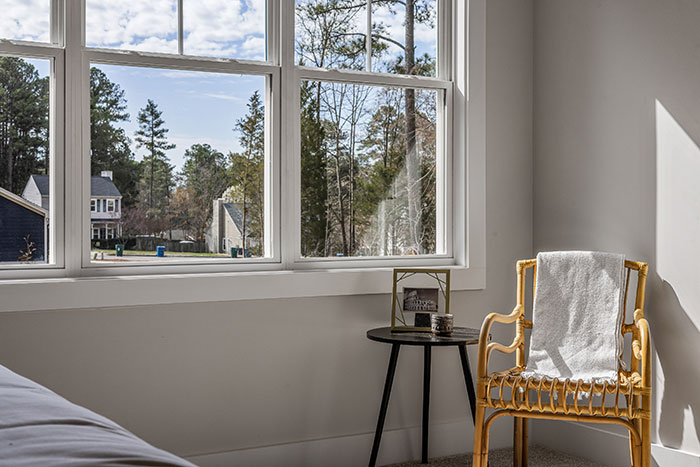 I’ve had visitors from Ireland and Germany who got upset that the windows in my home open up and not out.
I’ve had visitors from Ireland and Germany who got upset that the windows in my home open up and not out.
That very high quality bread and produce isn’t available at 7-11.
Has anyone seen videos on youtube about the 7-11’s in Japan ? They look amazing ! Such an amazing array of yummy foods to choose from ! Why can’t our 7-11’s be like those in Japan ! I’m so jealous. lol
As far as things Americans might complain about when visiting other countries, King noted: "lack of ice in their drinks, shops closing too early, coffees are too small (as they're used to giant cups of brewed coffee where espressos are more common outside of North America), people not speaking English (which needs to stop because it's just rude and ignorant), lack of customer service, terrible tasting peanut butter, lack of air conditioning in buildings, pedestrians not having the right-of-way on roads, their dislike of the metric system, and the serving sizes of food and drink being generally too small."
If you'd like to gain more insight on traveling or advice for your own upcoming trips, you can hear from King and the rest of the Solo Traveler team right here!
Here are somethings a foreign friend of mine that was on temporary work for 2 years in America complained about: 1. That in America she had to be on hold with customer service all the time. 2. That in America she had to call it football evenhough it's played with hands. 3. That in America she got asked 'what do you do' a lot. 4. That in America people expected their Doctor to fix them regardless of their lifestyle or eating style. 5. That in America everyone she met said that they’re Italian, French, German, Indian, Polish, Brazilian etc, even though they had been in American for a long time or even if they were born in America. 6. That in America she was a skinny girl everywhere she went and people kept asking her what her secret was. 7. That in America most of her co-workers said they were working there only for the health insurance or because they are waiting on their green card. 8. That in America conversations were always about complaining about everything starting from the weather to customer service. 9. That in America she found people were so happy eating or drinking (fries, soda and icecreams ) while outside everywhere like in beaches, bus stops, trains, cars, parks, malls, theaters, etc. 10. That in America she found nearly every meal had fries. 11. That in America people are so obsessed with sports that they would call in sick to go see their favorite team play.
I’ve met some Canadians that find it strange how we sign a receipt at a restaurant. Apparently in Canada, they use a credit card pin code instead for the credit card payment.
In the UK it became mandatory for cards to support EMV (aka "chip and pin") back in 2006, and the old fashioned signature fell into decline pretty soon afterwards - it's still *possible* to do it as a fallback if your card doesn't work, but it's discouraged as it's open to easy fraud. These days thanks to contactless payments even the PIN is usually optional; if you're paying by card you may have to insert it into a machine occasionally to re-verify, but given that most phones now support NFC even the *card* is dying out - I can't remember the last time I used mine.
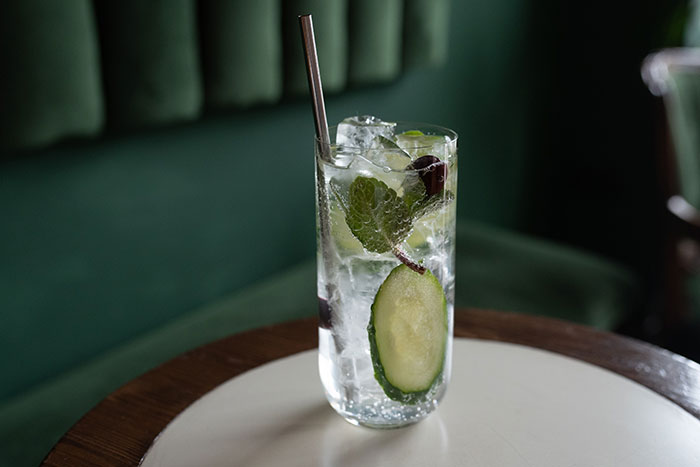 That we drink our beverages with ice. I can understand being annoyed if you order a drink that is 90% ice and 10% drink. But if it's just the right amount of ice to make your drink properly cold, what's the issue?
That we drink our beverages with ice. I can understand being annoyed if you order a drink that is 90% ice and 10% drink. But if it's just the right amount of ice to make your drink properly cold, what's the issue?
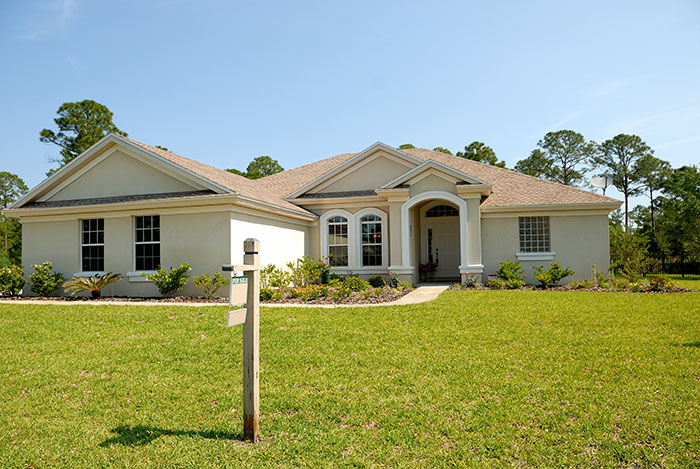 God, everything related to houses in the US (which would also apply to Canada, and partially to Australia and New Zealand as well).
* Wood frame construction. Not in all places. Besides, they provide better insulation against our more extreme temperatures, and they'll stay up after some moderate seismic activity. It's not just California and Alaska that have earthquakes; the ground sometimes shakes in places like Missouri and upstate New York, too.
* Open floor plans.
* Big refrigerators.
* Double hung windows, instead of windows that crank out.
* "Weak" 120 volt 60 cycle mains electricity. "It takes so much longer to heat up an electric kettle." We do have 220V ac in our houses, too.
* Electrical outlets in bathrooms.
* Electrical outlets without switches.
* Front door leads right into the living room. Really, the no-foyer thing is a lot more common with small houses, mobile homes, and homes in states with a more temperate climate, than in a typical house in rest of the US.
* Garbage disposals. "They hurt your sewer system." No more than some giant log from a meal of bratwurst and schnitzel.
* No walls or hedgerows along the street.
* Asphalt roof shingles instead of clay tiles.
* Closets. Really. I've heard Euros complain about closets. They're not as "flexible" as wardrobe cabinets, some say.
* Just home size in general. "Is too big, no?" That's what your mom said.
* Probably the most uninformed statement: "All your houses look alike." Subdivisions in Las Vegas are the exception in the US, not the norm. Europeans seem blind to UK red brick clone boxes, long rows of brutalist rowhouses, and superblocks of brutalist mid-rises.
God, everything related to houses in the US (which would also apply to Canada, and partially to Australia and New Zealand as well).
* Wood frame construction. Not in all places. Besides, they provide better insulation against our more extreme temperatures, and they'll stay up after some moderate seismic activity. It's not just California and Alaska that have earthquakes; the ground sometimes shakes in places like Missouri and upstate New York, too.
* Open floor plans.
* Big refrigerators.
* Double hung windows, instead of windows that crank out.
* "Weak" 120 volt 60 cycle mains electricity. "It takes so much longer to heat up an electric kettle." We do have 220V ac in our houses, too.
* Electrical outlets in bathrooms.
* Electrical outlets without switches.
* Front door leads right into the living room. Really, the no-foyer thing is a lot more common with small houses, mobile homes, and homes in states with a more temperate climate, than in a typical house in rest of the US.
* Garbage disposals. "They hurt your sewer system." No more than some giant log from a meal of bratwurst and schnitzel.
* No walls or hedgerows along the street.
* Asphalt roof shingles instead of clay tiles.
* Closets. Really. I've heard Euros complain about closets. They're not as "flexible" as wardrobe cabinets, some say.
* Just home size in general. "Is too big, no?" That's what your mom said.
* Probably the most uninformed statement: "All your houses look alike." Subdivisions in Las Vegas are the exception in the US, not the norm. Europeans seem blind to UK red brick clone boxes, long rows of brutalist rowhouses, and superblocks of brutalist mid-rises.
Electrical outlets in bathrooms?! I had watched a European version of House Hunters and there was a freakin' electrical plug for the shower in one home. I think it was in Portugal or Spain. Some Mediterranean area. The American guy viewing mentioned it and asked if it was safe. The realtor told him it was common. What?!
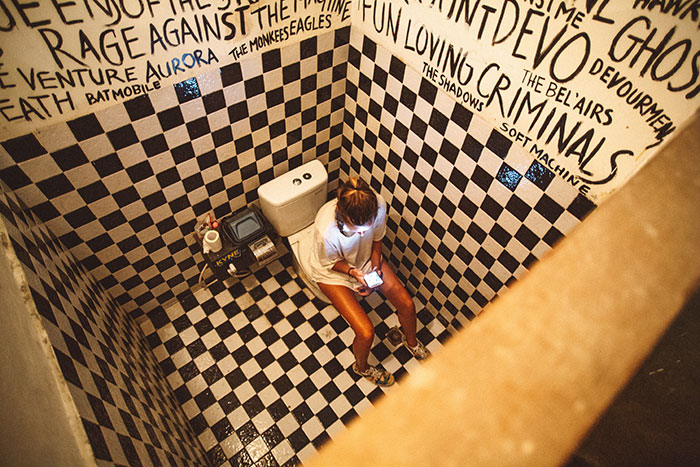 Those minuscule bathroom gap stalls. Apparently if there is a gap of any kind, that means that you are required to go up and stare through it.
Those minuscule bathroom gap stalls. Apparently if there is a gap of any kind, that means that you are required to go up and stare through it.
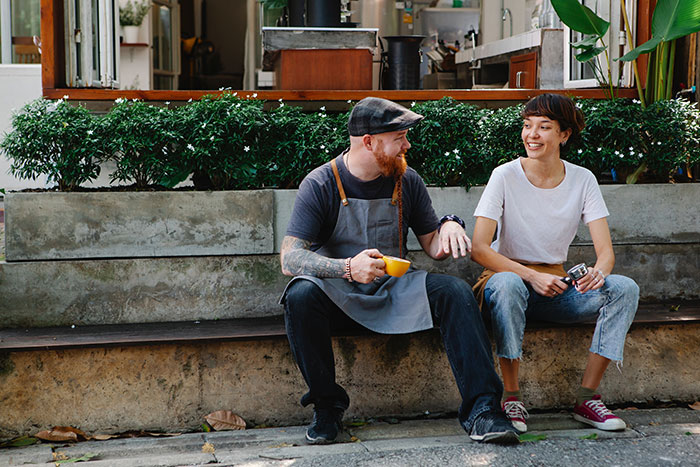 Small talk.
Its so uncommon in Europe that it seems visitors get really freaked out when they encounter it here.
That and peanut butter and jelly sandwiches.
Small talk.
Its so uncommon in Europe that it seems visitors get really freaked out when they encounter it here.
That and peanut butter and jelly sandwiches.
Bitter, lonely, miserable people? (I mean the ones that don't like PB&J.)
One that I’ve run into is asking to watch their bag while they go to the bathroom or something at the airport. I know it’s totally innocent and they don’t want to lose their seat, but it’s a huge no no at US airports.
The lack of bidets. As am American I cannot understand it myself!
They aren't that common in England either.. My British Grandparents traveled to Paris with us one Summer and my Grandfather came downstairs from his room, commenting on the brilliant concept of having a foot bath in the bathroom... ;-)
There was a German who posted a few days ago about an American skin cream that they bought that had instructions on it, and this really bothered them. I once saw a comment from a British person who said Americans have dishwashers because they're lazy.
The metric system in daily life. Obviously Americans use metric in all kinds of ways, especially in scientific fields, but it’s almost absent in measures of weight, length and volume in daily life. Seems to drive Europeans and America-bashing Redditors insane but no one outside of the hive mind bubble gives a s**t. They all forget that switching costs are a thing. When millions of people have been raised on one system of measures and billions of household items are labeled and calibrated in the same way, even transitioning to another system is costly and disruptive, for dubious benefit. Now, I would really enjoy exact measurements of lumber and for every home to have its structural plans readily available. Using a stud finder and rolling the dice on hitting plumbing and electrical to me seems barbaric, but I’m an amateur, so what do I know.
Our cars. I'm sorry that most Americans don't enjoy driving 5ft long 2ft tall .000001L single-seat right hand drive compacts. That's an exaggeration, but it sums it up.
I've got a super long waist so I actually can't fit in some models of cars because I'm so tall when im sitting, but I still drive a smaller car. But tbf we have to spend a lot of time in our vehicles depending on where we live so it's not crazy to want comfort or utility options. A 2- 4 hour drive to a child's extracurricular event is pretty common in my state.
That our food portion sizes are 'too large': 'Oh no, you’ve given me a lot of delicious food! What am I supposed to do with this food that is left over? How could I possibly take it to go home with me!? In some box, like it’s a light bulb!?' Ridiculous
I guess, this one goes with "if you are in America, accept American traditions". When we were in Italy and took food leftovers with us, because it was delicious and made for a nice snack later (and because our parents are from the "we paid for it, we're not wasting it!" generation), the reaction was nothing short of "Can't you afford enough food at home?"
Could you, for once, do one about surprises in other countries? Men holding hands in India while their wives walk behind them, service staff being surly in almost every latin speaking nation, people sweeping footpaths in the woods in Switzerland - Everywhere is different. Usually seems weird, but ultimately that's the charm.
I'm for the UK and I have to say, these repeat & rinse 'Why is US worse than anywhere else?' (and the endless 'We hate to work') posts are getting a little tedious. I agree, there will be places in the US that aren't great, but isn't that like everywhere else? Seems this is site is getting rather lazy in it's content...
I feel the title doesn't match the article. "Americans complaining about visitor's complaints about the US" or something similar feels closer.
Could you, for once, do one about surprises in other countries? Men holding hands in India while their wives walk behind them, service staff being surly in almost every latin speaking nation, people sweeping footpaths in the woods in Switzerland - Everywhere is different. Usually seems weird, but ultimately that's the charm.
I'm for the UK and I have to say, these repeat & rinse 'Why is US worse than anywhere else?' (and the endless 'We hate to work') posts are getting a little tedious. I agree, there will be places in the US that aren't great, but isn't that like everywhere else? Seems this is site is getting rather lazy in it's content...
I feel the title doesn't match the article. "Americans complaining about visitor's complaints about the US" or something similar feels closer.

 Dark Mode
Dark Mode 

 No fees, cancel anytime
No fees, cancel anytime 



